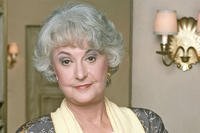In his book, "Born on the Fourth of July," Ron Kovic relates advice he received from a priest at the military hospital in Da Nang, Vietnam.
"Your fight is just beginning," the priest told him. "Sometimes no one will want to hear what you're going through. You are going to have to learn to carry a great burden, and most of your learning will be done alone." Kovic, a patriotic young Marine from Massapequa, Long Island, had just been paralyzed from the chest down by a Viet Cong bullet.
His physical paralysis precipitated a political journey for Kovic, from fervent anti-communist soldier to impassioned anti-war veteran. Of his recovery, Kovic told Newsweek in 1983: "It was a terrible period of time. It was an impossible period of time. It was a hellish period of time. Sometimes I'm amazed I made it."
He was not alone in that ordeal. His book is an unflinching portrait of the disability wards at many Veterans Administration (now Veterans Affairs) hospitals. Kovic describes an incident in a VA hospital in the Bronx, where he was treated after he broke his leg while doing stretching exercises. Kovic needed assistance one day and, once again, couldn't get anyone's attention. He shouted, buzzed, yelled and threw a water pitcher at the door.
When an orderly finally walked by, Kovic told him, "I'm a Vietnam veteran. I fought in Vietnam, and I've got a right to be treated decently." The orderly laughed and replied, "Vietnam, Vietnam don't mean nothing to me or any of these people. You can take your Vietnam and shove it up your ass."
This experience and many others like it were part of what drove Kovic to become an activist for peace and on behalf of his fellow veterans. In 1990, he told Time magazine that Vietnam Veterans Against the War was fighting for a "more truthful dialogue. ... When a system goes astray, it is the right and obligation of citizens to oppose it and change it -- for themselves and for generations to come."
In opposing the war and their treatment after returning home, however, Kovic and his fellow veterans found something else that was powerful: community. Shared commitment bred shared purpose and gave many of them, including Kovic, a sense of healing.
He wrote of one demonstration, "There was a togetherness, just as there had been in Vietnam, but it was a togetherness of a different kind of people and for a much different reason." That reason, he concluded, was to heal and set each other free.
Want to Know More About the Military?
Be sure to get the latest news about the U.S. military, as well as critical information about how to join and all the benefits of service. Subscribe to Military.com and receive customized updates delivered straight to your inbox.















